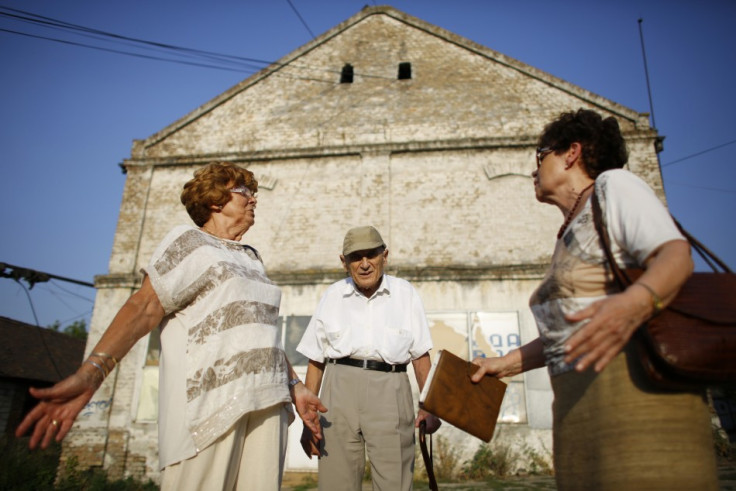Belgrade: Israeli Firm Involved in Concentration Camp's Mall Development

An Israeli architectural group has defended its involvement in the planned re-development of a shopping mall on a former Nazi concentration camp in Belgrade. The site is where 6,000 Jews and 1,500 Roma were slaughtered during World War II.
Ami Moore, managing director of MYS, denied the firm was being insensitive in the Holocaust matter as they personally offered to design and contribute £8,540 to the building of a memorial near the shopping centre's entrance that would "educate about the Holocaust".
But the Jewish community in Serbia slammed Delta, the company that now owns the land, for the conversion project of Topovske Supe into a shopping centre.
The land has been sold for €27 million to retail tycoon Miroslav Miskovic, head of Delta, who plans to spend €160 mllion for the development. Miskovic is one of the wealthiest men in the Balkans, making a fortune during Yugoslavia's collapse and the regime of Slobodan Milosevic.
Last year, he was arrested on suspicion of fraud. He posted a record $16 million bail in July pending trial. Delta and Miskovic have denied any wrongdoing.
The president of the Federation of Jewish communities in Serbia told The Independent that the place should be preserved as a reminder for future generations. They also claim that Delta tried to obtain "moral approval" from the federation.
The project could also receive a halt from Serbia's Agency for protection of cultural monuments, which said that it did not receive an application from Delta for permission to build.
"As the institution whose mission is to save, conserve and present important sites for future generations, we would like to save and conserve all the buildings of Topovske Supe and represent the Holocaust that happened there to the public," the agency's deputy director, Aleksandra Fulgozi, told Reuters.
Historians and relatives of those who perished in the camp told Reuters that the destruction of Topovske Supe demonstrates that Serbia has still a long way to go in recognising the Holocaust on its soil.
Serbia was the second Nazi-occupied territory to be declared Judenrein - "free of Jews" - in August 1942. Around 90% of the country's 16,000 Jews died there.
"Serbs traditionally perceive themselves as the victims," historian Jovan Byford told Reuters.
"They'd be very willing to talk about the Holocaust if you ask them about the Holocaust in Croatia, because the dominant narrative there is that Serbs perished in Jasenovac [concentration camp] with Jews," he told Reuters.
"But if you ask them about Serbia, it is a remnant of how things were seen in the Communist era, in which there was no recognition," he said.

© Copyright IBTimes 2025. All rights reserved.






















